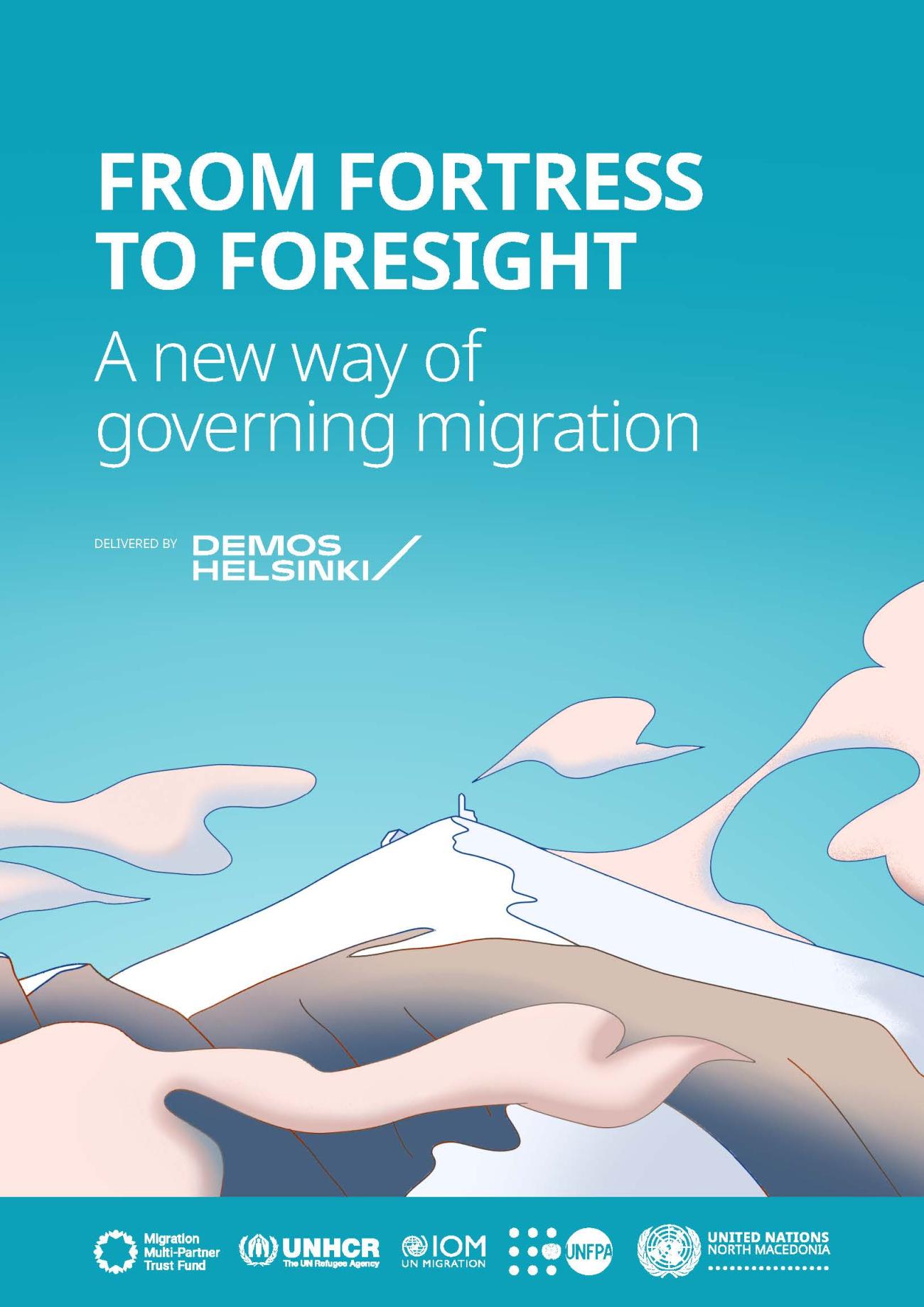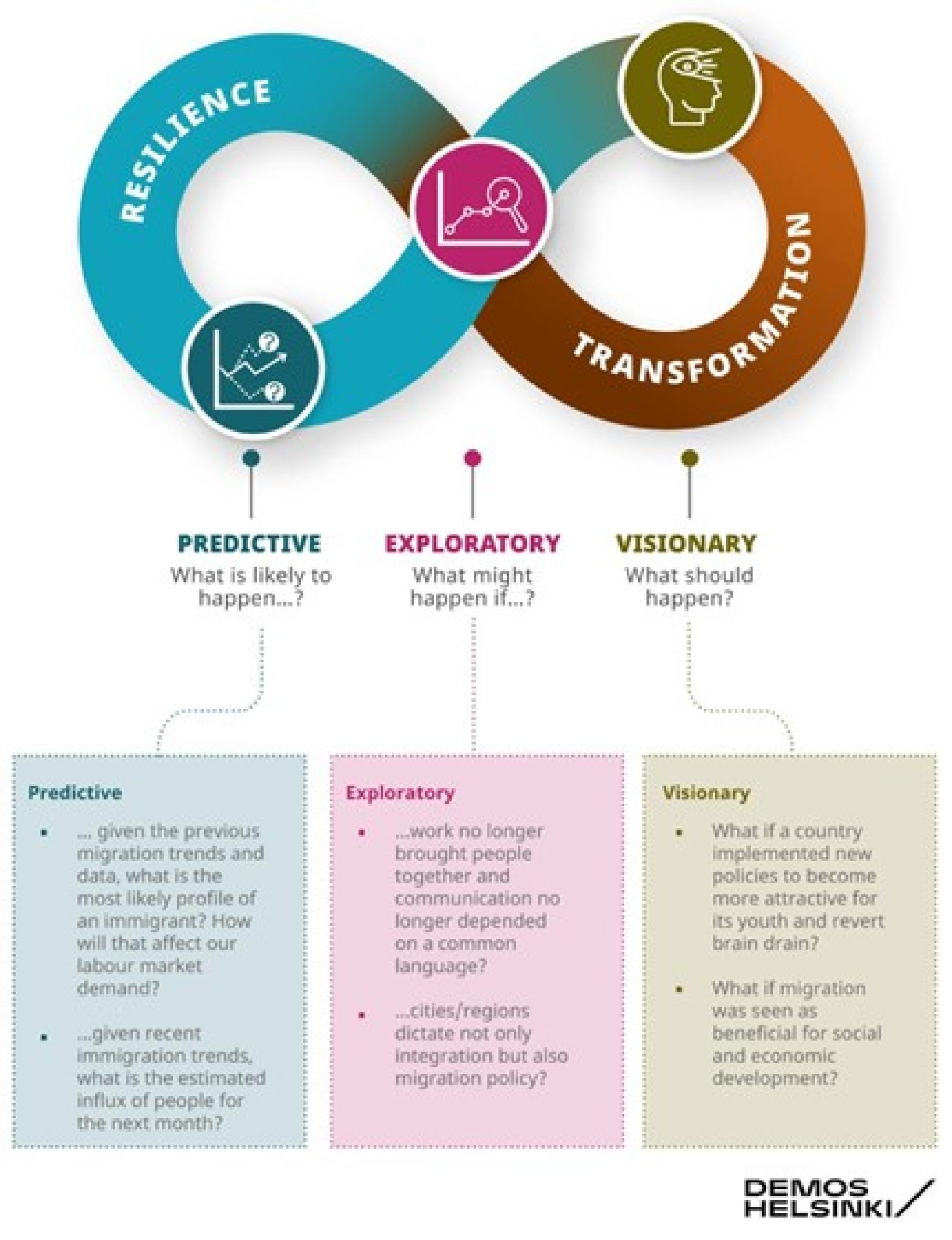Report: A new way of governing migration: from fortress to foresight

In this report, addressed mainly to policymakers and practitioners, we present what migration policymaking could look like if infused with anticipation.
Migration is a complex, multi-dimensional, and fast-changing domain. The traditional way of governing migration has been siloed and reactive to events, as from within a fortress. While understandably policymakers constantly face the enormous task of unite short-term needs and long-term possibilities, both on a national and EU level, we have yet to see a long-term and sustainable approach to migration governance.
A key challenge for policymakers is the lack of futures-informed governance. In this context, the Government of North Macedonia and the UN have embarked on a journey to pilot an ambitious and visionary anticipatory governance initiative that systematically connects foresight knowledge to migration policy.
In this report, addressed mainly to policymakers and practitioners, we present what migration policymaking could look like if infused with anticipation. We do this in the context of North Macedonia. When governance structures, processes and capacities are anticipatory, they can balance resilience and transformation, providing governments with a long-term and proactive approach.
The report summarises the development of our work with the United Nations High Commissioner for Refugees (UNHCR), the International Organisation for Migration (IOM), and the United Nations Population Fund (UNFPA) in North Macedonia.
To answer how anticipatory governance can be applied to migration management, the report lays out four steps:
- The outline of a conceptual framework for anticipatory policymaking. Our suggested model, presented in chapter three, comprised six core functions that, if combined, balance both resilience and transformation goals. In chapter four, we further explore the model in the context of migration.
- A depiction of an anticipatory policymaking model supporting the government of North Macedonia to inject foresight knowledge to different stages in a policy cycle.
- An assessment of the current migration governance system in North Macedonia. The goal was to understand the constraints and opportunities to develop ways forward. This work, presented in chapter five, resulted in six governance topics that can be addressed through anticipatory approaches: i) legislative and transparency governance, ii) governance silos, iii) statistical systems and silos, iv) citizen awareness and integration, v) going local, and vi) regional companionship.
- Recommendations for experimenting and developing anticipatory governance approaches to migration in North Macedonia. The recommendations, outlined in chapter seven, were based on two main levers for change: 1) to strengthen a long-term and holistic view of migration within the national development efforts, and 2) to build regional cooperation for tackling demographic resilience goals.

This work will be valuable to migration policymakers interested in adopting a more future-oriented and proactive approach. To shape the future of migration, walls are not the long-term answer: anticipatory governance is.
This publication is part of an initiative promoted by the United Nations High Commissioner for Refugees (UNHCR), the International Organisation for Migration (IOM), and
the United Nations Population Fund (UNFPA), in cooperation with the Intragovernmental Body for the Development and Implementation of the Migration Policy 2021-2025 of
the Republic of North Macedonia, and under coordination of the United Nations Resident Coordinator’s Office in North Macedonia (UNRCO).
The initiative is part of the Joint Program “Evidence Based Migration Policy Planning and Discourse in North Macedonia” supported by the UN Migration Multi-Partner Trust Fund.



